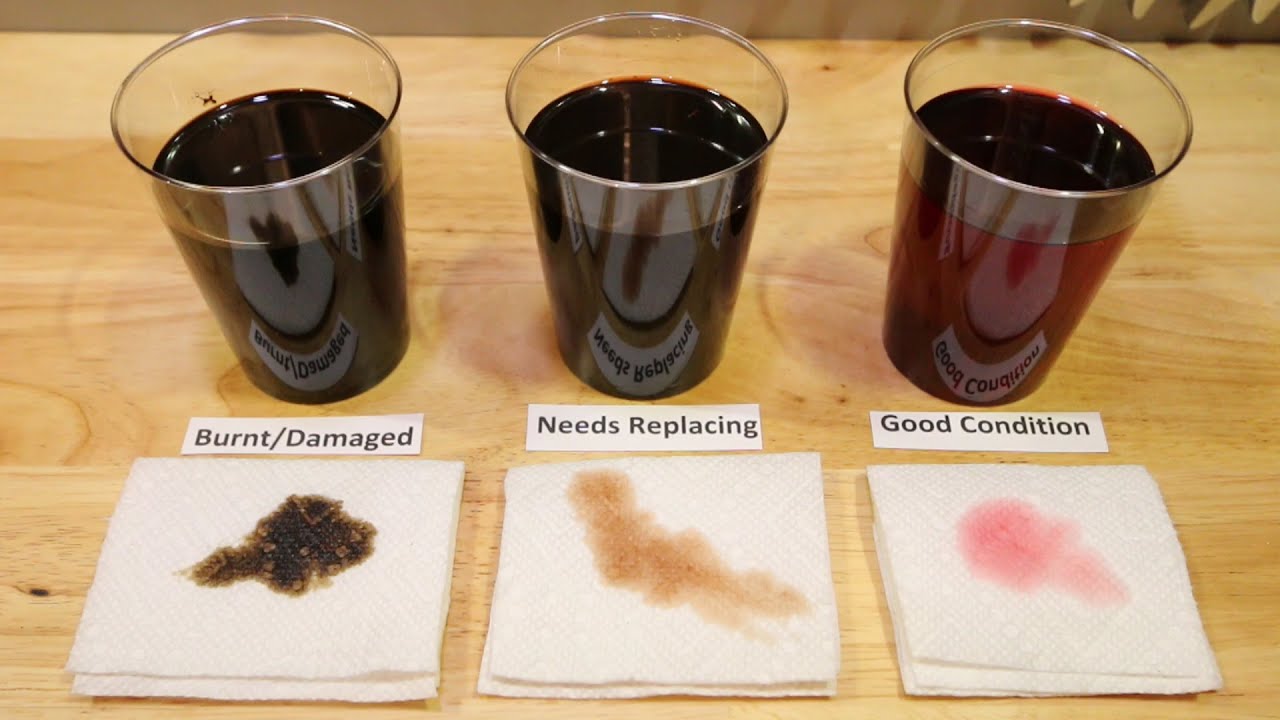Choosing the right type of transmission fluid is crucial for maintaining the optimal performance and longevity of your vehicle’s transmission system. Whether you are a seasoned car enthusiast or a casual driver, understanding the importance of selecting the correct transmission fluid is essential. With numerous options available in the market, it can be overwhelming to determine which type of transmission fluid is best suited for your specific make and model. Using the wrong transmission fluid can lead to a range of problems, including decreased fuel efficiency, reduced shifting performance, and even potential damage to the transmission itself. Therefore, it is imperative to conduct thorough research and consult your vehicle’s manufacturer guidelines to identify the precise type of transmission fluid that meets the required specifications. By doing so, you can ensure that your transmission operates smoothly, efficiently, and reliably. Don’t compromise on the health of your vehicle’s transmission; make an informed decision today to protect and optimize your car’s performance by choosing the right type of transmission fluid that suits your vehicle’s needs. Trust the experts and give your car the care it deserves.

Type of Transmission Fluid
| Vehicle Make | Transmission Type | Recommended Fluid |
|---|---|---|
| Ford | Automatic | Mercon V |
| Honda | CVT | Honda HCF-2 |
| Toyota | Automatic | Toyota ATF WS |
| BMW | Manual | BMW MTF-LT-3 |
| Audi | Dual-Clutch | Audi G 052 182 |
The Intriguing Truth: How Changing Transmission Fluid Can Impact Your Vehicle
What Type of Transmission Fluid Do I Need?
Choosing the right transmission fluid for your vehicle is crucial to ensure optimal performance and longevity of your transmission system. With so many different types and brands available in the market, it can be quite overwhelming to determine which one is the right choice for your vehicle. In this article, we will provide you with the necessary information to help you make an informed decision.
1. Understanding the Basics
Transmission fluid is a lubricant that keeps the transmission system in your vehicle running smoothly. It not only helps in cooling and lubricating the moving parts but also ensures proper shifting and power transfer. The type of transmission fluid your vehicle requires depends on its make, model, and year.
2. Checking the Owner’s Manual
One of the first steps in determining the type of transmission fluid you need is to consult your vehicle’s owner’s manual. The manual contains valuable information about the recommended transmission fluid for your specific vehicle. Look for a section titled “Fluid Specifications” or “Fluid Recommendations” to find the exact type and viscosity of transmission fluid required.
3. Identifying the Fluid Type
Transmission fluids come in different types, including automatic transmission fluid (ATF), manual transmission fluid (MTF), and continuously variable transmission fluid (CVT). Each type is specifically formulated to meet the unique requirements of different transmission systems. It is essential to identify the correct type for your vehicle.
ATF is the most common type of transmission fluid used in automatic transmissions and comes in various grades such as Dexron, Mercon, or ATF+4. MTF is designed for manual transmissions and provides better protection against wear and tear. CVT fluid is exclusively designed for vehicles equipped with a continuously variable transmission.
4. Consider Your Vehicle’s Age and Mileage
The age and mileage of your vehicle play a significant role in determining the type of transmission fluid you need. Older vehicles often require a different type of fluid compared to newer ones. Additionally, if your vehicle has high mileage, it may benefit from a high-quality synthetic transmission fluid that offers better protection against heat and wear.
Consulting with a professional mechanic or referring to online resources specific to your vehicle’s make and model can help you determine whether a particular type of fluid is suitable for your older or high-mileage vehicle.
5. Seek Professional Advice
If you are unsure about which transmission fluid to use or if you have unique circumstances such as modified vehicles or severe driving conditions, it is always recommended to seek professional advice. A certified mechanic or dealership technician can provide valuable insights and recommend the appropriate transmission fluid that meets your vehicle’s specific needs.
Using the wrong type of transmission fluid can lead to serious damage, reduced performance, and even transmission failure. Therefore, it is crucial to take the time to research and identify the correct fluid type for your vehicle.
Conclusion
Choosing the right transmission fluid is essential for maintaining the health and efficiency of your vehicle’s transmission system. By consulting your owner’s manual, identifying the correct fluid type, considering your vehicle’s age and mileage, and seeking professional advice when necessary, you can ensure that your vehicle performs optimally and avoids potential issues caused by using the wrong transmission fluid.
Remember, regular maintenance and fluid changes according to the manufacturer’s recommendations are essential to extending the lifespan of your transmission system and avoiding costly repairs down the road.

